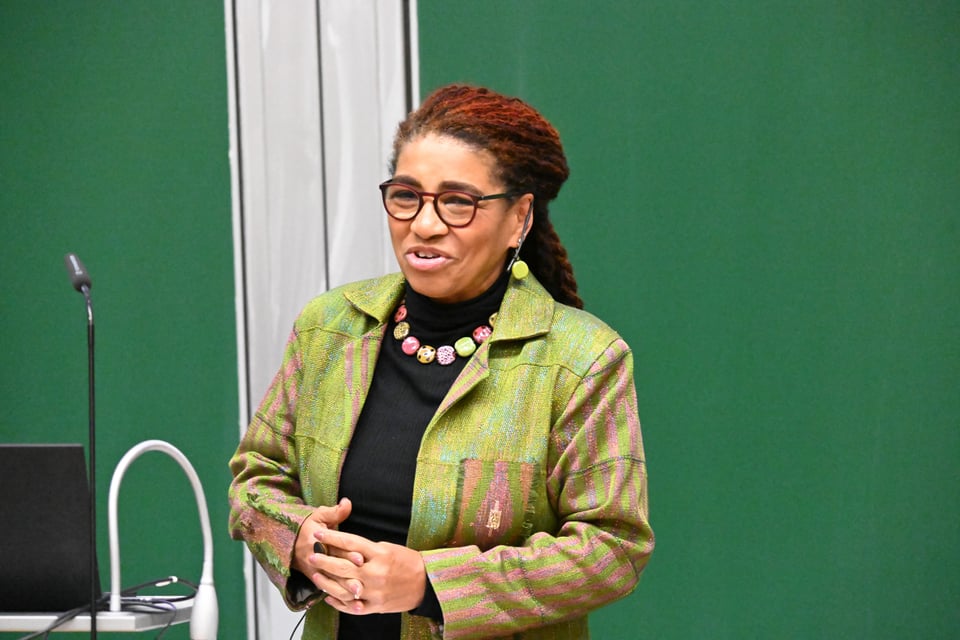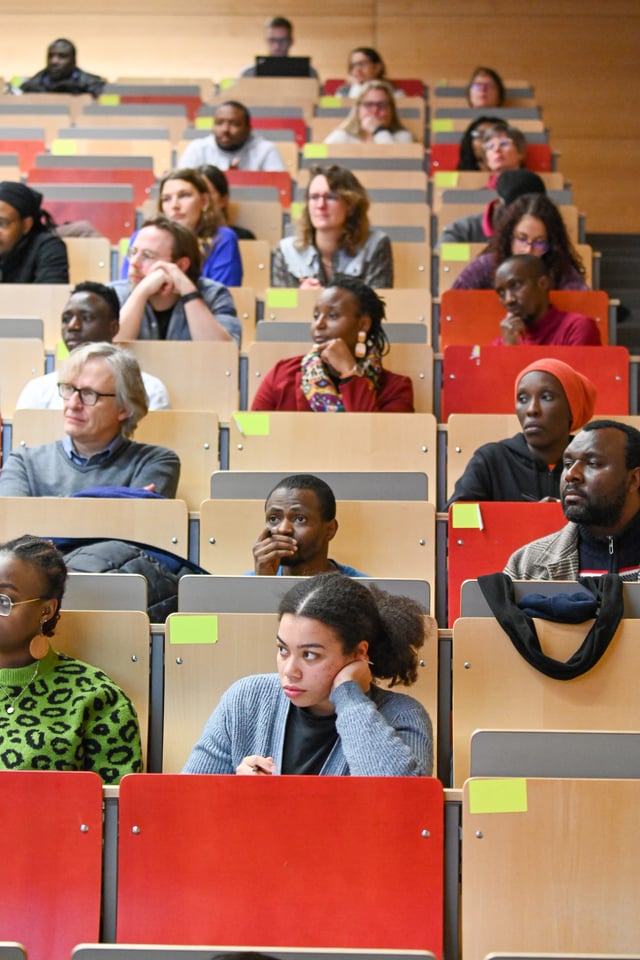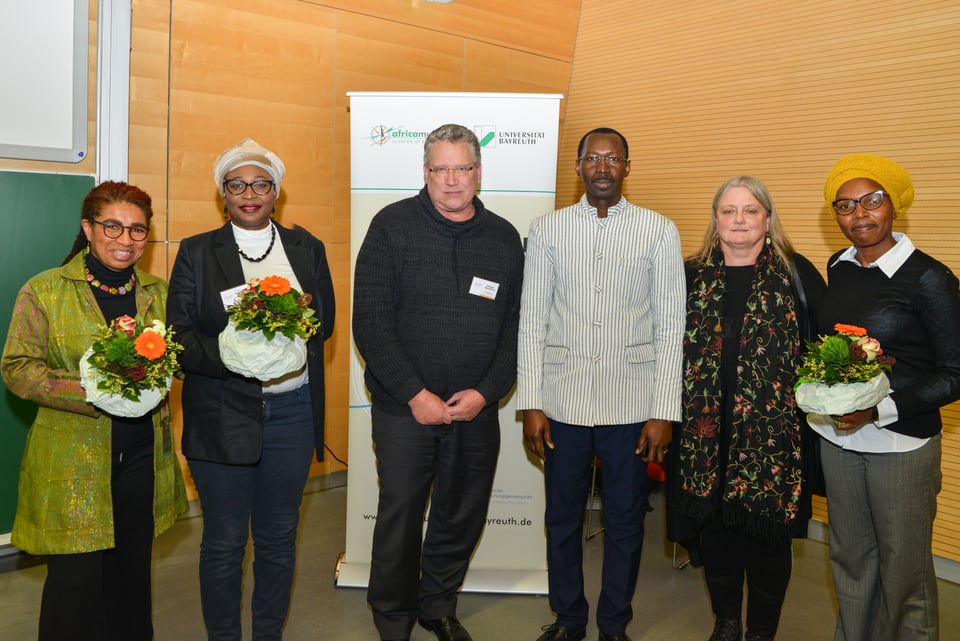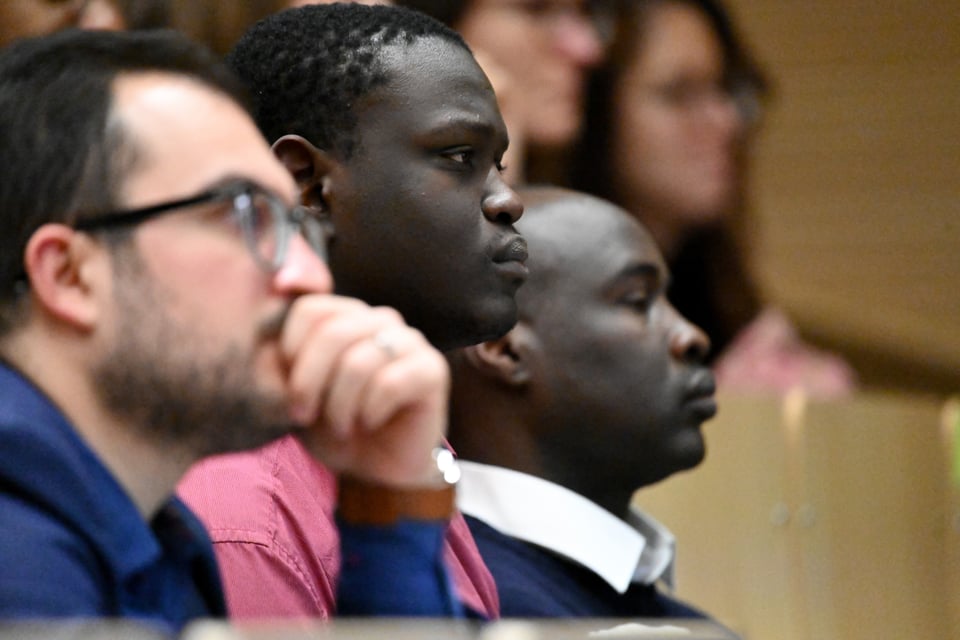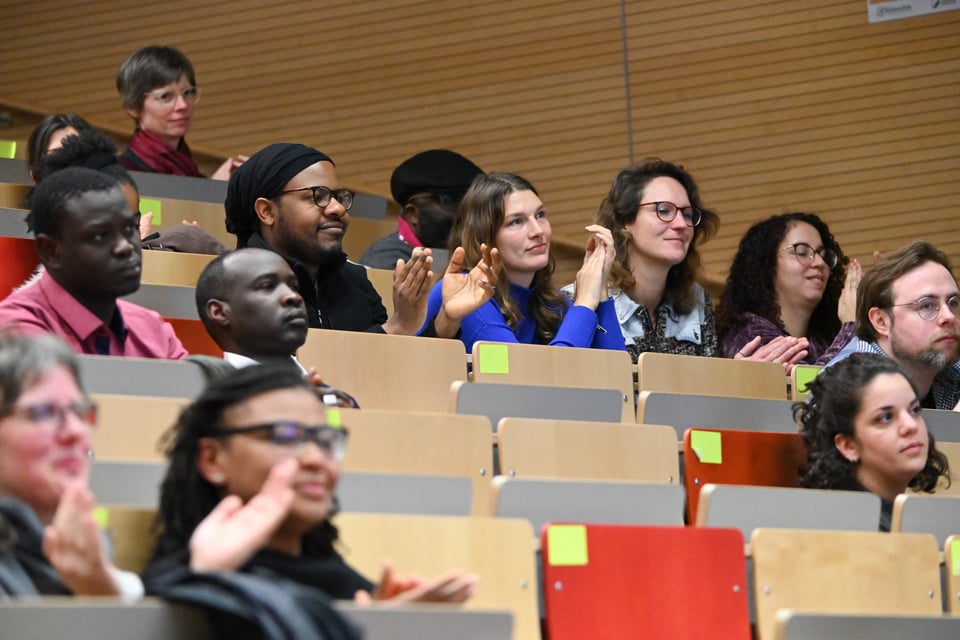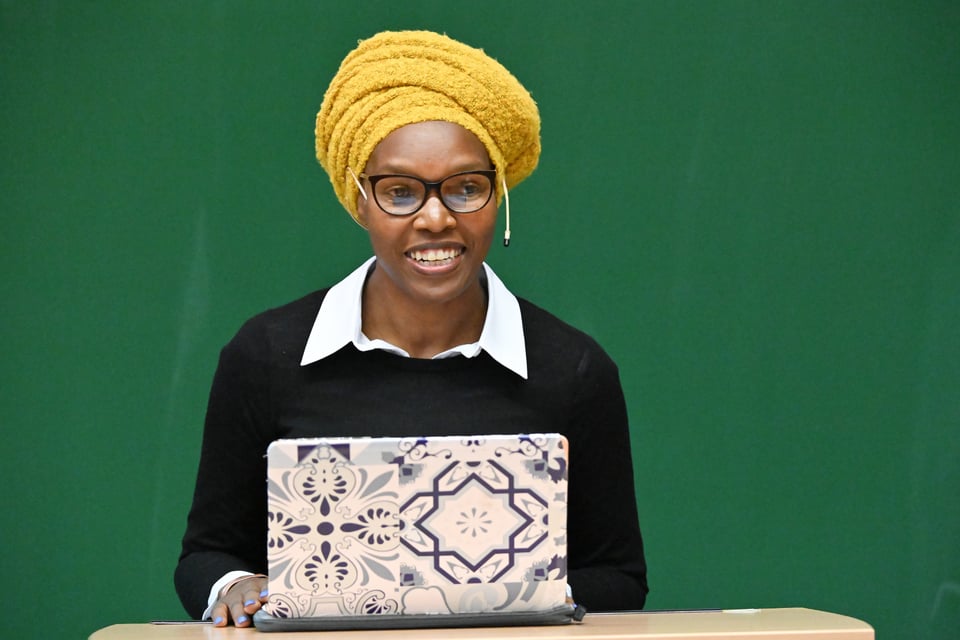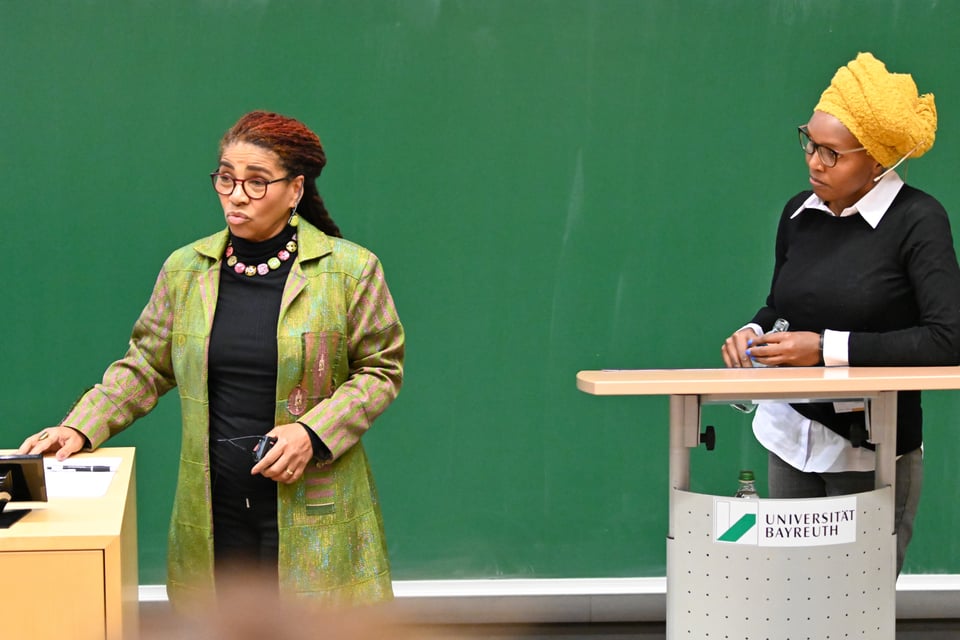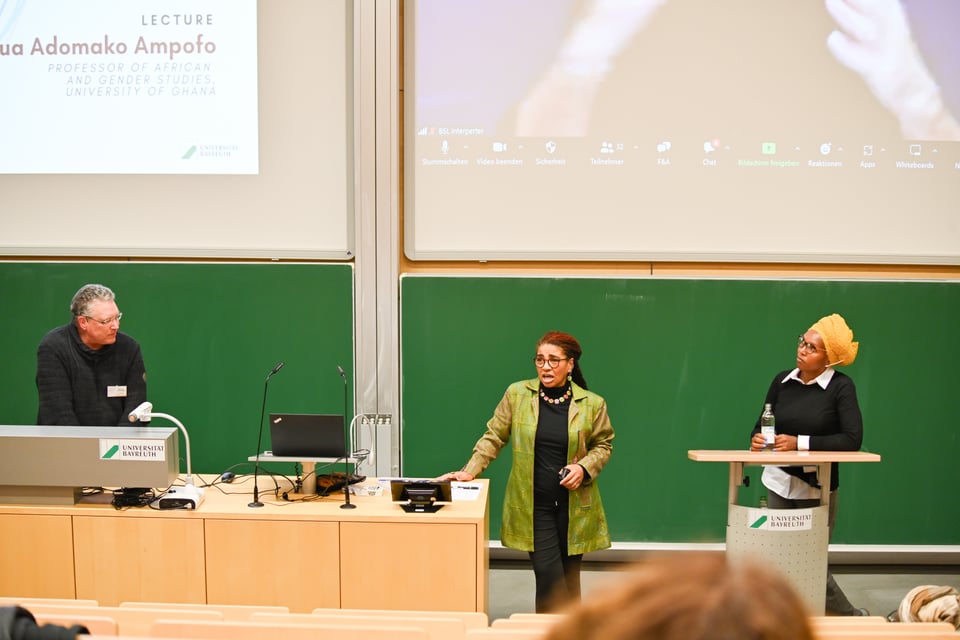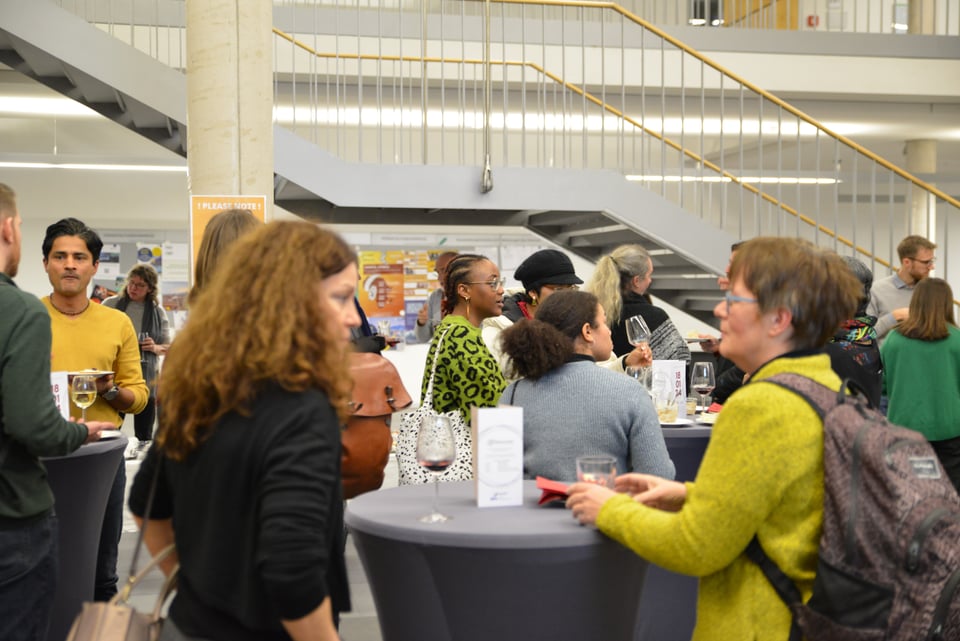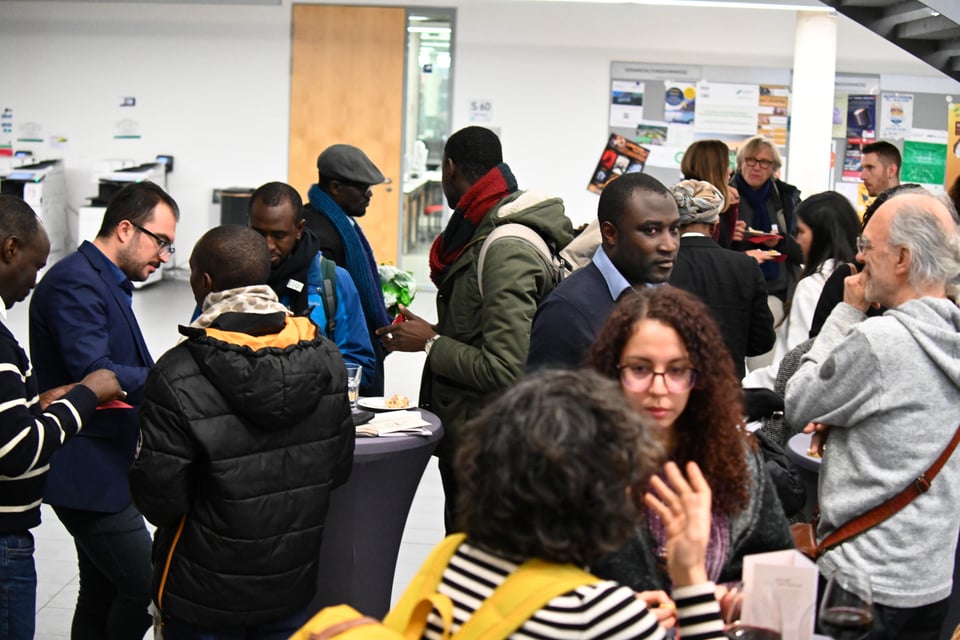News
New Year Lecture 2024: “Crazy Tings” – Navigating an African Agenda in the Academy
22.01.2024
In the 2024 New Year Lecture of the Africa Multiple Cluster of Excellence, Akosua Adomako Ampofo explored the tensions of pursuing an African agenda within global academia. The event featured an introduction by Fulera Issaka-Toure and a thoughtful response by Grace Musila, enriching the discussion with critical perspectives from across the continent.
On 18 January 2024, the Africa Multiple Cluster of Excellence inaugurated its event calendar with the Fifth Annual New Year Lecture, delivered by Akosua Adomako Ampofo, Professor of Gender and African Studies at the University of Ghana and chairperson of the Advisory Board of the Cluster. Entitled Crazy Tings: Can we be true to an African agenda and survive in today’s academy?, the lecture offered valuable insights for participants on-site and online.
In her presentation, Adomako Ampofo drew on the popular Nigerian song “Crazy Tings” by Tems as a metaphor for the many “crazy things” encountered within academic institutions. Music, she argued, is intimately tied to identity, memory and emotional resonance – qualities that reflect the lived experience of Global Africa. By choosing this metaphor, she invited the audience to consider how the academy often times shapes and constrains African scholars.
Central to her theme was the question: Can one remain faithful to an African intellectual agenda without being subsumed by the demands of Western academic structures? Adomako Ampofo urged African scholars to embrace their commitment to local priorities, languages, methods and forms of knowledge, even when these diverge from prevailing global norms. Survival in the academy, she acknowledged, often means navigating institutional pressures that valorise publication metrics, external funding and Western epistemologies.
Adomako Ampofo emphasised that being “true to an African agenda” involves more than decolonisation as a critique; it is about embedding African-centred modes of thought within research questions, curricula and collaboration models. She encouraged scholars to define their own terms of engagement, rather than adapting to standards imposed by external institutions.
The lecture illuminated the tension between resistance and compliance. Adomako Ampofo did not advocate radical rejection of Western structures, but rather strategic negotiation – where African scholars retain agency over their intellectual contributions. She highlighted the importance of intergenerational solidarity and institutional support systems that sustain scholarly autonomy.
Following the lecture, the audience engaged in a lively Q&A, reflecting on issues such as the practical challenges of funding, the role of languages other than English in scholarship, and the emotional labour of decolonial critique. Adomako Ampofo responded with both rigour and warmth, acknowledging the structural barriers while affirming the urgency of agency and collective persistence.
As the lecture concluded, the message was clear: for African and Africanist scholars, survival in the academy does not require compromise of one’s intellectual commitments. Rather, it demands creativity, collective resolve, and a steadfast orientation towards knowledge rooted in African realities.
The New Year Lecture 2024 set a thoughtful, probing tone for Africa Multiple’s year ahead, inviting further inquiry into how decolonial agendas can flourish and remain sustainable within global academic structures – a challenge that is as urgent as the pertinent questions Adomako Ampofo raised.


